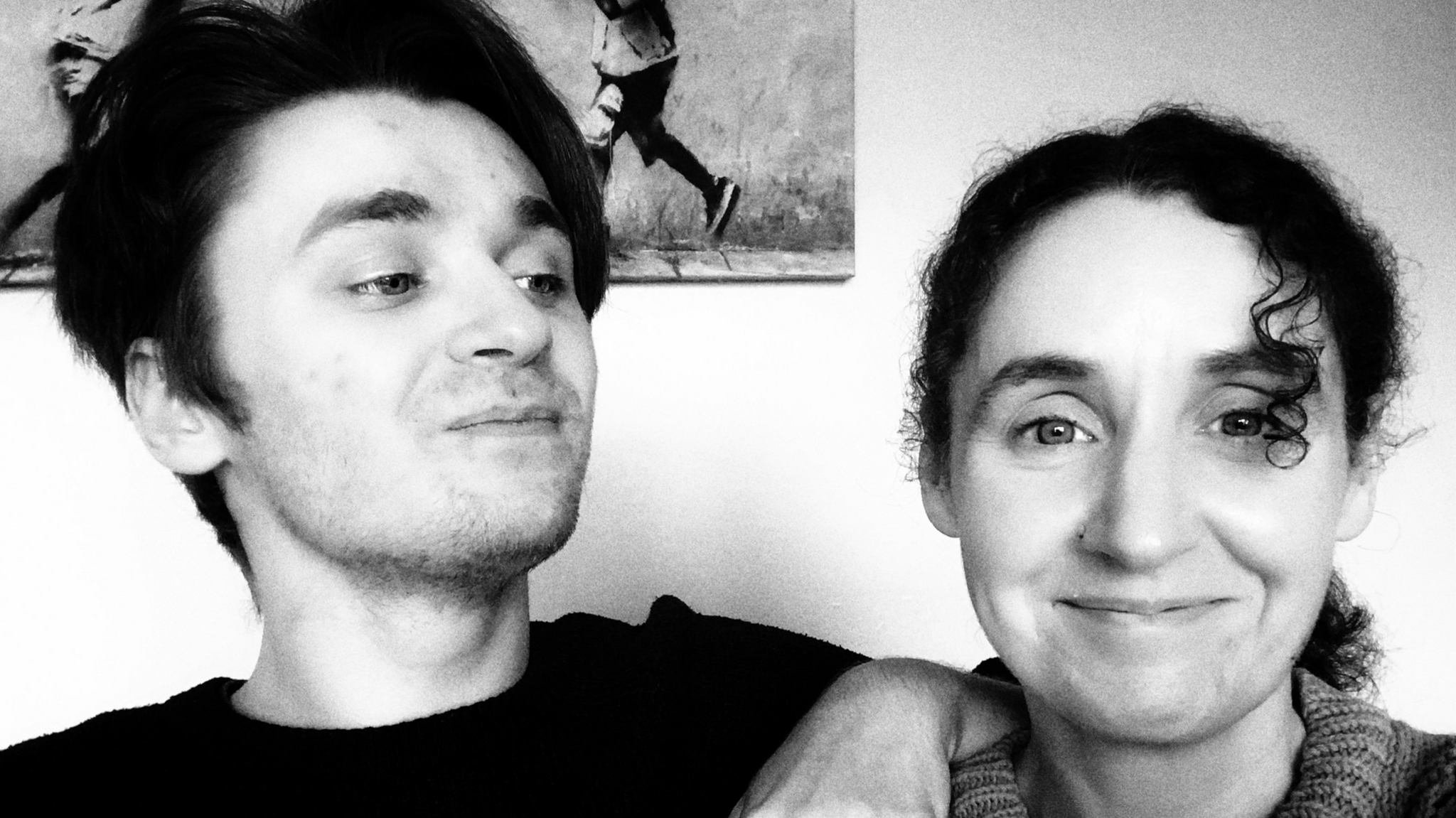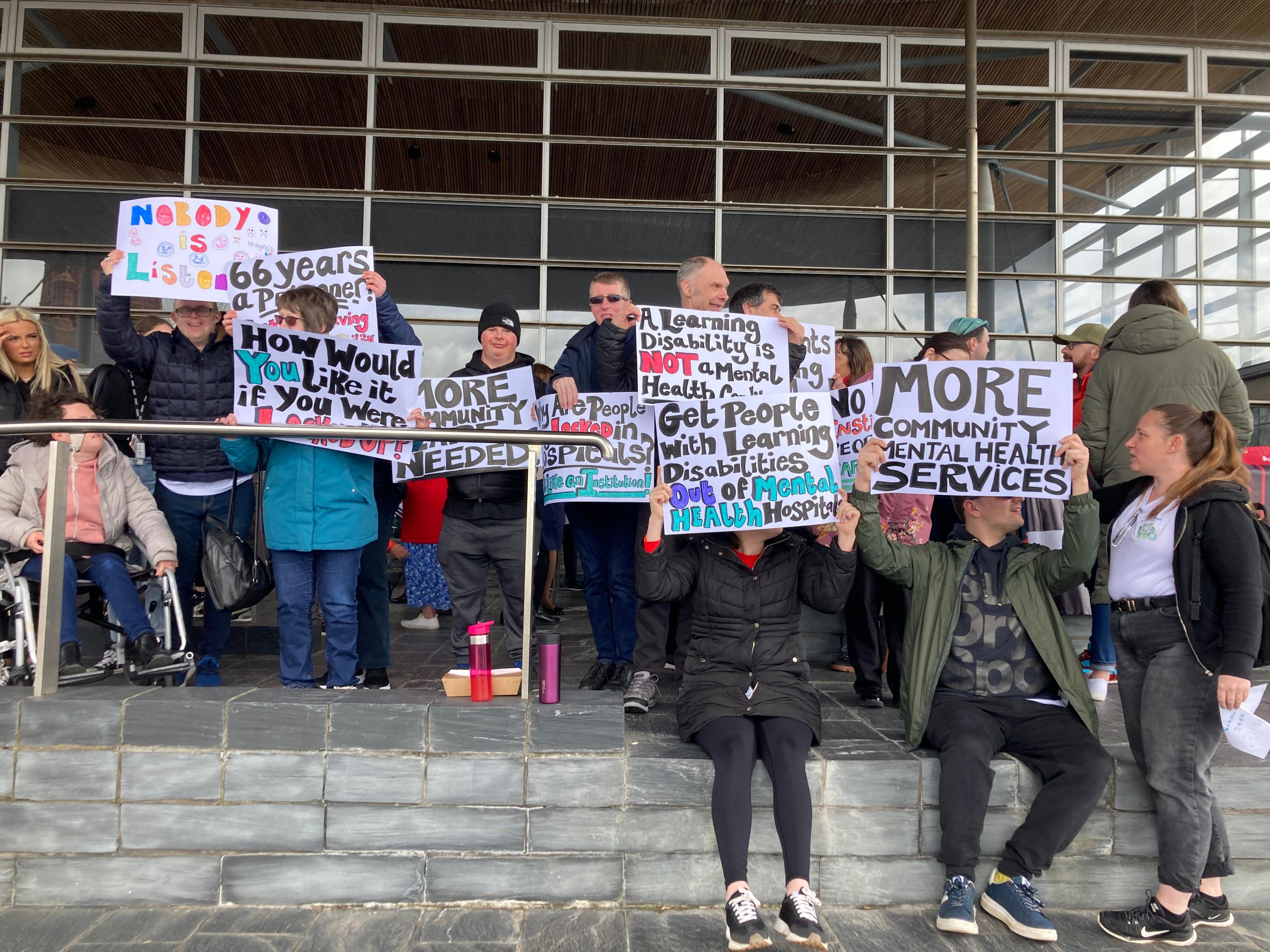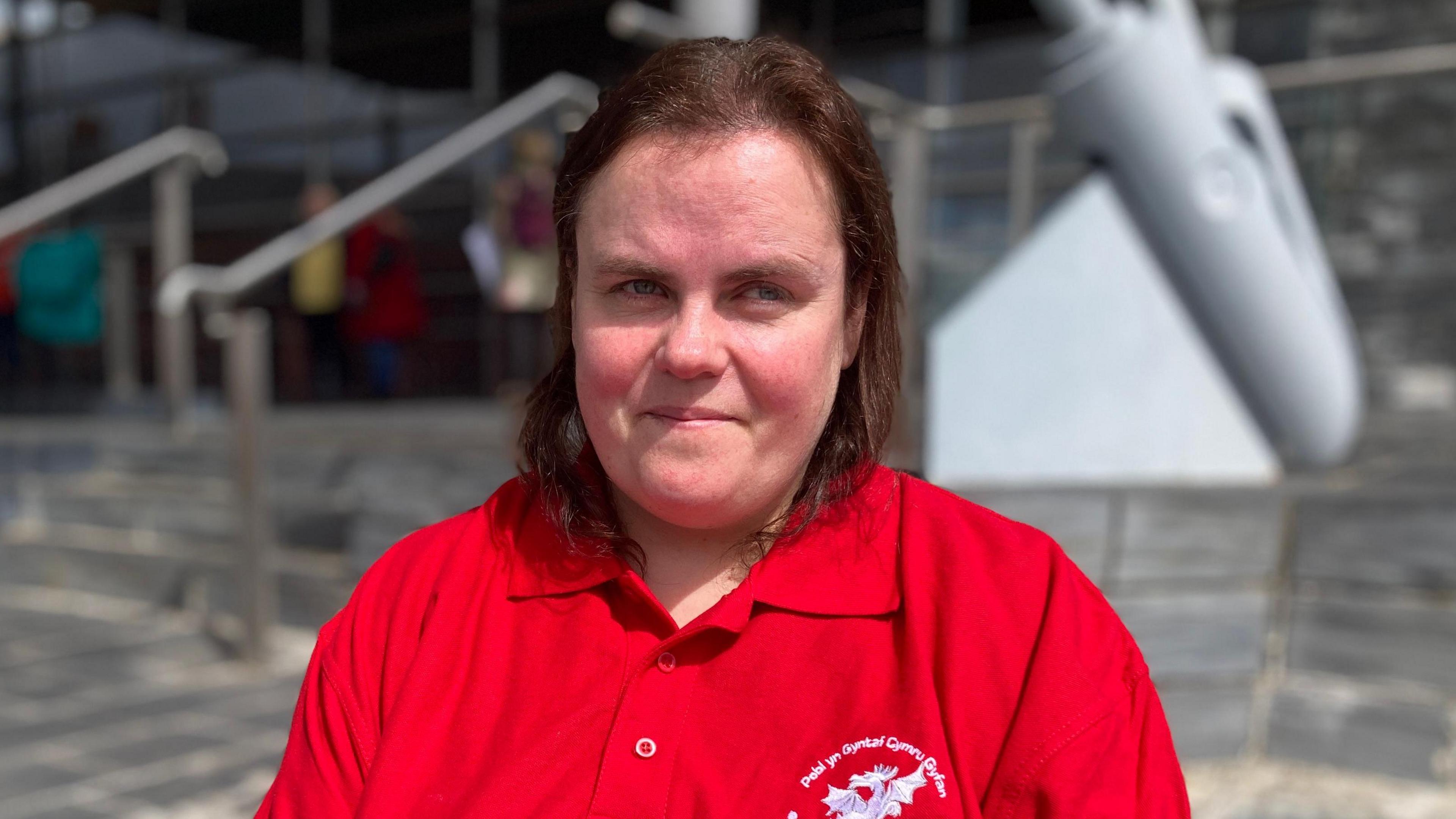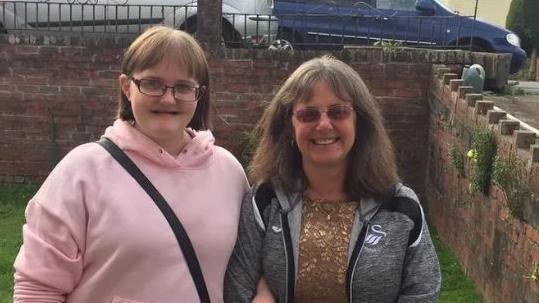People with learning disabilities 'locked up'

Dawn says 21-year-old Jack Cavanagh being in hospital is "traumatic"
- Published
People with learning disabilities are being "locked up" instead of receiving care in the community, according to a campaign group.
Dawn Cavanagh, who founded Stolen Lives, said people with disabilities "had always been a forgotten group".
The organisation has launched a petition urging the Welsh government to take action.
The Welsh government denied people were being held "inappropriately".
Learning disability support group is 'vital'
- Published2 April 2024
Disabled girl left without school place for almost a year
- Published25 February 2024
Patients locked in secure hospitals for decades
- Published15 August 2022
Ms Cavanagh, from Hook, Pembrokeshire, started Stolen Lives after the "traumatic" experience of trying to find appropriate care for her 21-year-old son Jack.
He has a learning disability, autism, epilepsy and ADHD.
She said his disabilities affected him "quite severely" and since the age of 16, he had been "inappropriately placed", often in hospitals.
"One of the issues is that we’ve been told that we’re just individual cases.
"I decided to start a group to show that you can’t keep fobbing us off one-by-one.
"I was also interested to know who else is out there, because it can’t just be me," she said.

About 150 people attended a protest outside the Senedd
Ms Cavanagh added many families in the Wales-wide group were frustrated and scared.
"I think a real problem is that so many families are frightened to speak out because they fear repercussions.
"They fear that a loved one could be moved in the middle of the night to another hospital.
"We fear they could be sent to England – you don’t have any power as a parent, that power gets taken away," she said.
The group has a manifesto which calls on the Welsh government to publish data on how many people with learning difficulties are being held in hospitals or secure units and asking for more support for families.
About 150 people attended a protest at the Senedd on Wednesday to urge the Welsh government to do more.
"These families so often feel ignored and alone," Ms Cavanagh said.

Sophie Hinksman said being in a secure hospital was like being in prison
Sophie Hinksman, 38, was at the protest.
Diagnosed with foetal alcohol syndrome as a child, she now lives independently, but previously she was moved to a secure unit after her mental health declined.
She said: “It was horrible. All I wanted was peace and quiet and there were a lot of people around me who wanted their own needs to be met.
"Some of them were quite noisy and shouting.”
Sophie was later moved out of the county to another secure hospital, which was “like being in a prison”.
She said: “You were fenced in and you didn’t really have much freedom. It wasn’t really for me."

Cath Dyer's daughter Claire also ended up being sent to a secure hospital
Cath Dyer's autistic daughter Claire was sent to a secure hospital in 2014 after being deemed "too dangerous".
"It very important that our voices are heard," said Mrs Dyer, from Swansea.
"As parents we know what places are right for our children, and if we say we can cope and we want our child with us then listen to what we're saying."
She added that Claire, who was 24 when sectioned for her "challenging behaviour", wasn't helped by being placed in Brighton - a 10-hour round trip away from home.
Gradually, however, she was allowed home visits, which increased in length until she was eventually de-sectioned.
"Nearly 10 years later and she's still at home with us," added Mrs Dyer.
"Now we have support from a fantastic care company which is very person-centred, and with them Claire is thriving."
The Welsh government said it took the care of vulnerable people "very seriously".
It added: "We are committed to reducing the number of people with a learning disability who are housed in a hospital setting.
“We do not agree that people are being systematically detained inappropriately in mental health units."
It said data from health boards suggested there were about 140 Welsh patients in specialised inpatient services in Wales and England.